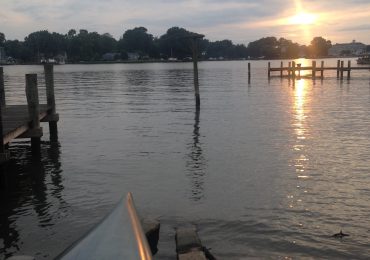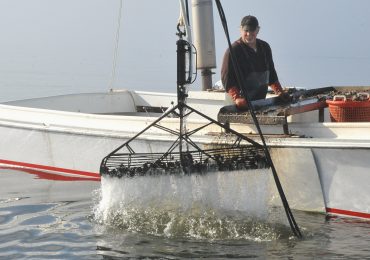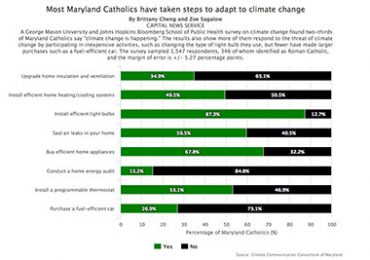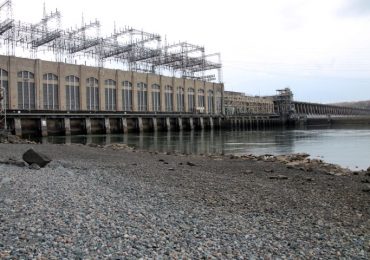WASHINGTON – Maryland state officials and the Environmental Protection Agency have worked to restore the Chesapeake Bay and combat climate change over the past eight years, but uncertainty surrounds the future of these policies as a new administration enters the…
Controversial sewer line to be built on Kent Island
The Maryland Board of Public Works approved a controversial new sewer line for Kent Island. The $33 million project aims to remove contaminated water from flooded septic tanks, but conservation specialists fear that the new construction will overdevelop the Eastern Shore.
Pope’s visit Sparks Maryland Congregations to Push for Climate Legislation
More than 80 congregations throughout the state are standing behind a multi-faith effort to spread climate change awareness and improve Maryland environmental policy.
Report: Nutrients, Not Just Sediment at Conowingo, Affect Chesapeake Bay
A multi-agency report found that the Conowingo Dam is not the biggest culprit for water quality issues affecting the bay, and dredging sediment from the reservoir behind the dam should not be considered a cost-effective solution.
New Regs Could Mean Chicken Litter Business Flies The Coop
As Maryland prepares to implement new regulations on phosphorus, those in the chicken litter business are worried their industry could fall apart.
Smith Islanders Angered by State Action
Smith Island residents believe the Maryland government is looking to abandon their home. Now, they’re fighting back.
Growing Algae Could Clean the Chesapeake Bay and Create Biofuel
Typically, algae hurt the bay because they contribute to dead zones, oxygen depleted areas harmful to aquatic life. But by growing fields of algae in a controlled system, the tiny plants can clean water while creating a feedstock for biofuel.







